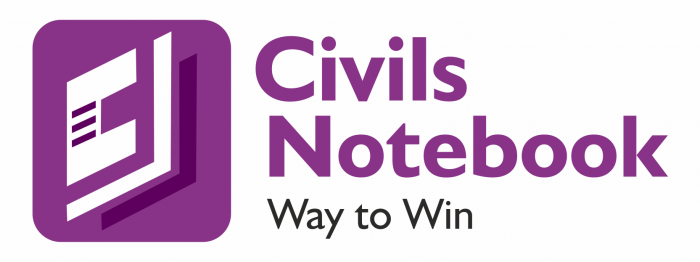Context:
Recently, the Union Cabinet chaired by the Prime Minister Shri Narendra Modi approved the National Education Policy 2020.
About National Education Policy 2020
- It is the first education policy of the 21st century and replaces the thirty-four year old National Policy on Education (NPE), 1986.
- It is aimed at making way for large scale, transformational reforms in both school and higher education sectors.
- It is built on the foundational pillars of Access, Equity, Quality, Affordability and Accountability.
- It is aligned to the 2030 Agenda for Sustainable Development.
- It aims to transform India into a vibrant knowledge society and global knowledge superpower by making both school and college education more holistic, flexible and multidisciplinary.
Key Highlights of National Education Policy 2020
School Education
Ensuring Universal Access at all levels of school education
- It emphasizes on ensuring universal access to school education at all levels i.e. from pre-school to secondary.
- The proposal for achieving universal access at all levels of school education are:
- Infrastructure support,
- Innovative education centres to bring back dropouts into the mainstream,
- Tracking of students and their learning levels,
- Facilitating multiple pathways to learning involving both formal and non-formal education modes,
- Association of counselors or well-trained social workers with schools,
- Open learning for classes 3,5 and 8 through NIOS and State Open Schools,
- Secondary education programs equivalent to Grades 10 and 12,
- Vocational courses, adult literacy and life-enrichment programs.
Early Childhood Care & Education with new Curricular and Pedagogical Structure
- With emphasis on Early Childhood Care and Education, the 10+2 structure of school curricula is to be replaced by a 5+3+3+4 curricular structurecorresponding to ages 3-8, 8-11, 11-14 and 14-18 years respectively.
- It will bring the hitherto uncovered age group of 3-6 years under school curriculum, which has been recognized globally as the crucial stage for development of mental faculties of a child.
- The new system will have 12 years of schooling with three years of Anganwadi/ pre schooling.
- NCERT will develop a National Curricular and Pedagogical Framework for Early Childhood Care and Education (NCPFECCE) for children up to the age of 8.
- The planning and implementation of ECCE will be carried out jointly by theMinistries of HRD, Women and Child Development (WCD), Health and Family Welfare (H&FW), and Tribal Affairs.
Attaining Foundational Literacy and Numeracy
- NEP 2020 calls for setting up of a National Mission on Foundational Literacy and Numeracy by MHRD.
- The states will prepare an implementation plan for attaining universal foundational literacy and numeracy in all primary schools for all learners by grade 3 by 2025.
- A National Book Promotion Policy is to be formulated.
Reforms in school curricula and pedagogy
- The school curricula and pedagogy will aim for holistic development of learners by equipping them with the key 21st century skills.
- The reforms will aim at reduction in curricular content to enhance essential learning and critical thinking and greater focus on experiential learning.
- There will be no rigid separations between arts and sciences, between curricular and extra-curricular activities, between vocational and academic streams.
- Vocational education will start in schools from the 6th grade, and will include internships.
- A new and comprehensive National Curricular Framework for School Education, NCFSE 2020-21, will be developed by the NCERT.
Multilingualism and the power of language
- The policy has emphasized mother tongue/local language/regional language as the medium of instruction at least till Grade 5, but preferably till Grade 8 and beyond.
- Sanskrit to be offered at all levels of school and higher education as an option for students, including in the three-language formula.
- The students to participate in a fun project/activity on ‘The Languages of India’, under the ‘Ek Bharat Shrestha Bharat’ initiative.
- Indian Sign Language (ISL) will be standardized across the country, and National and State curriculum materials developed, for use by students with hearing impairment.
Assessment Reforms
- It envisages a shift from summative assessment to regular and formative assessment.
- The new assessment is more competency-based, promotes learning and development, and tests higher-order skills, such as analysis, critical thinking, and conceptual clarity.
- A new National Assessment Centre, PARAKH (Performance Assessment, Review, and Analysis of Knowledge for Holistic Development), will be set up as a standard-setting body.
Equitable and Inclusive Education
- The policy aims to ensure that no child loses any opportunity to learn and excel because of the circumstances of birth or background.
- Special emphasis will be given on Socially and Economically Disadvantaged Groups (SEDGs) which include gender, socio-cultural, and geographical identities and disabilities.
- It will include setting up of Gender Inclusion Fund and also Special Education Zones for disadvantaged regions and groups.
- Children with disabilities will be enabled to fully participate in the regular schooling process from the foundational stage to higher education.
- Every state/district will be encouraged to establish “Bal Bhavans” as a special daytime boarding school, to participate in art-related, career-related, and play-related activities.
- The free school infrastructure can be used as Samajik Chetna Kendras.
Robust Teacher Recruitment and Career Path
- The recruitment of teachers will be through robust and transparent processes.
- The promotions will be merit-based, with a mechanism for multi-source periodic performance appraisals and available progression paths to become educational administrators or teacher educators.
- A common National Professional Standards for Teachers (NPST) will be developed by the National Council for Teacher Education by 2022.
Standard-setting and Accreditation for School Education
- The policy envisages clear, separate systems for policy making, regulation, operations and academic matters.
- The States/UTs will set up independent State School Standards Authority (SSSA).
- The SCERT will develop a School Quality Assessment and Accreditation Framework (SQAAF) through consultations with all stakeholders.
Higher Education
Increase Gross Enrolment Ratio (GER) to 50% by 2035
- The policy aims to increase the Gross Enrolment Ratio in higher educationincluding vocational education from 26.3% (2018) to 50% by 2035.
Holistic Multidisciplinary Education
- The policy envisages broad based, multi-disciplinary, holistic Under Graduate education with flexible curricula, creative combinations of subjects, integration of vocational education and multiple entry and exit points with appropriate certification.
- UG education can be of 3 or 4 years with multiple exit options and appropriate certification within this period.
- An Academic Bank of Credit is to be established for digitally storing academic credits earned from different Higher Education Institutions (HEIs).
- Multidisciplinary Education and Research Universities (MERUs), at par with IITs, IIMs, to be set up as models of best multidisciplinary education of global standards in the country.
- The National Research Foundation will be created as an apex body for fostering a strong research culture and building research capacity across higher education.
Regulation of HEIs
- A Higher Education Commission of India (HECI) will be set up as a single overarching umbrella body for entire higher education, excluding medical and legal education.
- HECI to have four independent verticals, i.e.
- National Higher Education Regulatory Council (NHERC) for regulation;
- General Education Council (GEC) for standard setting;
- Higher Education Grants Council (HEGC) for funding; and
- National Accreditation Council (NAC) for accreditation.
- HECI will function through faceless intervention through technology and will have powers to penalise HEIs not conforming to norms and standards.
Rationalised Institutional Architecture
- The HEIs will be transformed into large, well resourced, vibrant multidisciplinary institutions providing high quality teaching, research, and community engagement.
- The definition of university will allow a spectrum of institutions that range from Research-intensive Universities to Teaching-intensive Universitiesand Autonomous degree-granting Colleges.
Teacher Education
- A new and comprehensive National Curriculum Framework for Teacher Education, NCFTE 2021, will be formulated by the NCTE in consultation with NCERT.
- By 2030, the minimum degree qualification for teaching will be a 4-year integrated B.Ed. degree.
Mentoring Mission
- A National Mission for Mentoring will be established, with a large pool of outstanding senior/retired faculty.
Financial support for students
- The National Scholarship Portal will be expanded to support, foster, and track the progress of students receiving scholarships.
- Private HEIs will be encouraged to offer larger numbers of free ships and scholarships to their students.
Technology in education
- The National Educational Technology Forum (NETF) will be established as an autonomous body.
- NETF will be created to provide a platform for the free exchange of ideas on the use of technology to enhance learning, assessment, planning and administration.
Promotion of Indian languages
- The policy recommends setting an Indian Institute of Translation and Interpretation (IITI), National Institute (or Institutes) for Pali, Persian and Prakrit.
- The institutes will aim to ensure the preservation, growth, and vibrancy of all Indian languages.
- Internationalization of education will be facilitated through both institutional collaborations, and student and faculty mobility.
Other Measures under NEP 2020
- The policy aims to achieve 100% youth and adult literacy.
- The Centre and the States will work together to increase the public investment in Education sector to reach 6% of GDP at the earliest.
Significance of National Education Policy 2020
- Its primary focus is on multi-disciplinary, holistic higher education with flexibility in the choice of subjects, and multiple entries and exit points for students.
- It envisages a single regulator for higher education i.e. the Higher Education Council of India (HECI) including teacher education.
- The multiple exit/entry and the credit bank will allow students to get educated while earning.
- It is a big step forward because the policy is aimed at providing autonomy of colleges and allows for much more innovation.
- It aims to bring in a huge transformational change in the Indian education system through holistic and multidisciplinary approaches.
Concerns associated with National Education Policy 2020
- The globalisation thrust in education policy to compete with global higher education institutes is missing.
- The public investment in education sector at 6% of GDP could have been set higher.
Way Forward
- The NEP 2020 will require huge infrastructure and change in orientationof all stakeholders to make it a success.
- The bureaucratisation of processes in the education sector has to bereduced.
- It is time the government should open up the education sector to private investment that will bring the cost of the education down and help in meeting the diverse needs of the country.

